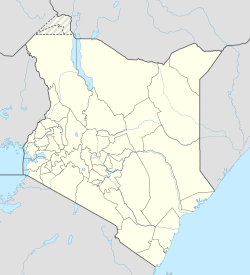This article needs additional citations for verification .(October 2022) |
Kamirithu | |
|---|---|
| Coordinates: 1°07′S36°38′E / 1.12°S 36.63°E | |
| Country | Kenya |
| County | Kiambu County |
| Population | |
| • Urban | 42,084 |
| Time zone | UTC+3 (EAT) |
Kamirithu is a settlement in Kiambu County, within Kenya's former Central Province. It was one of the colonial villages established during the scramble for the Kenyan "White Highlands" in the early 1900s. Kamirithu is the home of Chief Kamiri and Chief Jairus. Kamirithu is best known from Ngugi wa Thiong'o's Kamirithu Educational and Cultural Center, which was an open-air theater where Ngaahika Ndeenda (I Will Marry When I Want) was first performed.
